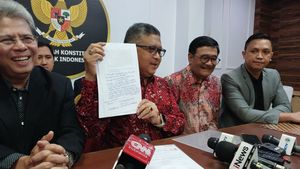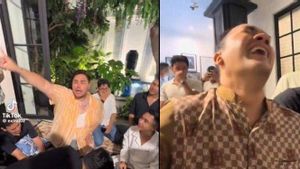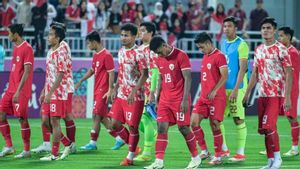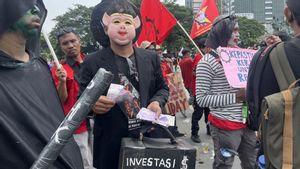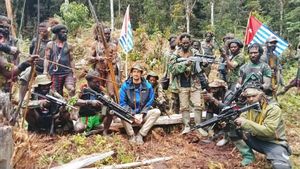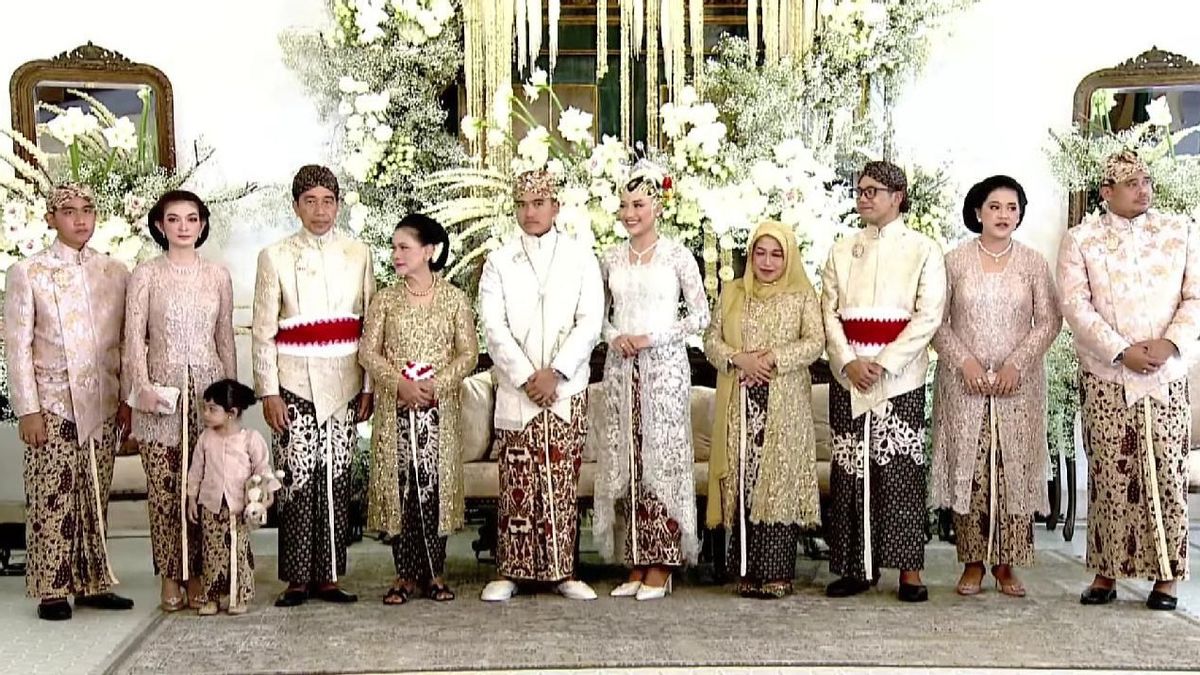
JAKARTA Hiruk pikuk ahead of the Regional Head Election (Pilkada) which will be held on November 27, 2024, is starting to be felt. Ahead of the announcement of the registration of candidates, the names mentioned to be advancing in the regional elections are starting to be widely reported. From a series of candidates, there are three names that steal attention because the three have very close relations with President Joko Widodo.
Jokowi's tenure as President of Indonesia is only a matter of months. On October 20, 2024, the former mayor of Solo will end his position after two terms leading Indonesia.
Even so, Jokowi's name in the political arena in the country is considered to still have a magnet that is too strong. With political jokes, three names from Jokowi's family are said to be participating in the election, namely Bobby Nasution, Erina Gudono, to Kaesang Pangarep.
Bobby Nasution is predicted to run in the North Sumatra gubernatorial election, while Jokowi's other son-in-law, Erina Gudono, is widely associated with the Sleman Regent. Finally, Kaesang Pangarep was nominated to continue Jokowi's footsteps as Governor of DKI Jakarta.
Towards the end of his leadership as the number one person in Indonesia, accusations about the political dynasty that was built by Jokowi never subsided. The success of Gibran Rakabuming Raka, with all his controversy, as vice president accompanies Prabowo Subianto in the 2024 presidential election is strong evidence that Jokowi's journey will still dominate the politics of the country.
As some people suspect, Jokowi's legacy in the form of power has not stopped at his eldest son. Erina Gundono has recently been linked to the Gerindra Party as the party that will carry him in the Sleman Regent election.
Meanwhile, Bobby Nasution will run in the North Sumatra gubernatorial election. The Mayor of Medan is reported to have received the blessing of the Golkar Party to run in the gubernatorial election. However, he also admitted that he would still take the North Sumatra gubernatorial election form through PDIP even though the party had blacklisted and branded Bobby a traitor
Recently, the name of the General Chairperson of the Indonesian Solidarity Party (PSI) Kaesang Pangarep was suddenly mentioned as entering the stock exchange for the candidate for Governor of DKI Jakarta in the 2024 Pilkada.
But just like Gibran, Kaesang's steps to advance in the regional elections have hit the age limit. Based on Law Number 7 of 2017 concerning Elections and KPU Regulation Number 3 of 2017 concerning Candidacy for Governors, Regents and Mayors, the minimum age for participating in the regional elections is 30 years.
Meanwhile, Kaesang himself was born on December 25, 1994. This means that he will only be 30 years old after the election which was held one month earlier.
Apart from Bobby, Erina, and Kaesang, other close people to Jokowi will also enliven the 2024 Pilkada contestation, namely Sendi Fardiansyah who is Iriana Jokowi's personal secretary and Devid Agus Yunanto, Jokowi's own secretary.
Sendi will run in the Bogor Pilkada as a candidate for Mayor of Bogor, while Devid is said to be fighting for the Boyolali Regent's seat for the 2024-2029 period.
"He (Joko Widodo) welcomed the reports I gave. Also gave me direction and support. For me it is a very important capital," explained Sendi.
If Sendi claims to have the support of Jokowi, another thing with Devid has yet to confirm the news of him running in the 2024 Pilkada.
Seeing the possibility of a political dynasty built by Jokowi ahead of this year's simultaneous regional elections, Political Observer from Al Azhar University Indonesia Andriadi Achmad said this was normal. But on the one hand, this also has the potential to become a role model for Indonesian politics in the future.
SEE ALSO:
"In my opinion, while there is an opportunity for 'political jokes' there is no problem with Jokowi to approve and even endorse his family in positions of position and politics in Indonesia, including in simultaneous elections in November 2024," Andriadi told VOI.
"However, it is a problem if the tradition of building a political dynasty practiced by Jokowi's family becomes a role model for Indonesian politics in the future, both at the national level and even at the local level, namely the Pilkades," Andriadi added.
Despite the assumption that Jokowi's image has been tarnished due to recent political concerns, Andriadi believes that the former governor of DKI Jakarta has remained a magnet for political parties who are fighting.
"For Jokowi's magnetic political parties, the covert road is to win the direct regional elections such as Bobby Nasution in the North Sumatra Pilkada, Erina Gudono in the Sleman Regency Pilkada, Kaesang Pangarep in the DKI Jakarta regional elections and even the Sendi (Assistan Bu Iriana Jokowi) in the Bogor City Election," he explained.
The political dynasty is actually not foreign, either in Indonesia or abroad. Prior to the reform era, Suharto had appointed his daughter, Siti Hardiyanti Rukmana, as social minister.
After that, the practice of political dynasties became more fertile when the elections were directly enforced since 2005. One of the most massive political dynasties occurred in Banten with the Chasan Sochib Dynasty. In the same period, almost all members of this dynastic family held important positions in politics in the province.
Starting from Ratu Atut Chosiyah (son) as Governor of Banten for two periods from 2007 to 2013; Ratu Tatu Chasanah (son) as Deputy Regent of Serang for the period 2010-2015 and Regent of Serang for the period 2016-2020; Airin Rahmy Diany (announced) as Mayor of South Tangerang for two terms from 2011 to 2020.
That still does not include grandchildren, wives, nephews, and grandchildren of in-laws who also have important positions. Interestingly, in Banten there is not only the Chasan dynasty but also the Dimyati dynasty in Pandeglang and the Jayabaya dynasty in Lebak.
Andriadi emphasized that although the people's voice was the main determinant in the regional elections, it could not be denied that the level of popularity and finance had a big role in winning the direct regional elections.
"Actually, political dynasties or other terms are popularized as family politics have long been practiced in local politics such as several regencies/cities or provinces providing support and leadership relays to wives or husbands or children or other families," said Andriadi.
"Although in the regional elections, the people who are the main determinants regarding electability, it is only necessary to realize that in the current direct regional elections where social capital, popularity capital and financial capital are electability capital (election) and even the main determinants in winning the direct regional elections," he concluded.
The English, Chinese, Japanese, Arabic, and French versions are automatically generated by the AI. So there may still be inaccuracies in translating, please always see Indonesian as our main language. (system supported by DigitalSiber.id)



